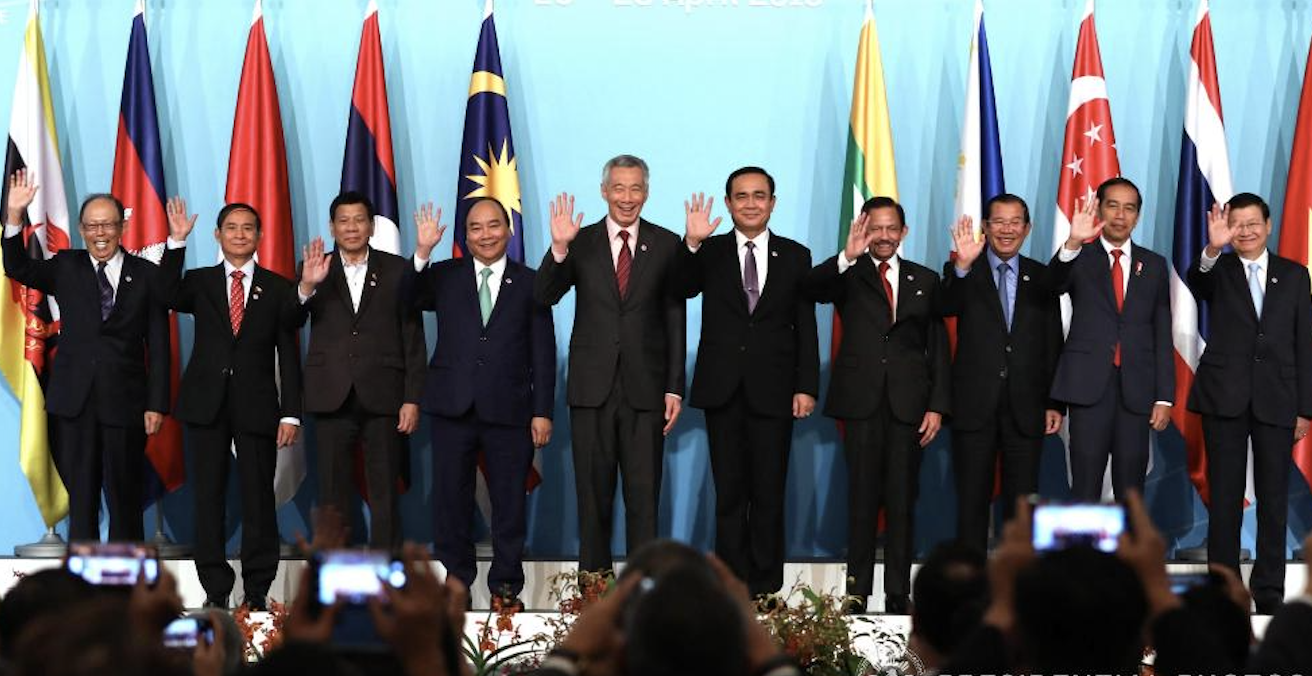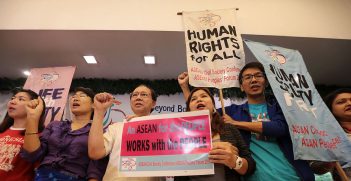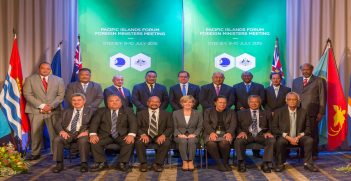Diplomacy: A Velvet Glove, but on Which Hand?

In the international arena, zero-sum conceptions of security focused on hard power capabilities do not foster a stable environment. States can better further their interests by utilising the gentle coercion of diplomacy and acting cooperatively through multilateral organisations.
I recently had a frank discussion with a friend who works in the Australian public service. Like most frank discussions, it started small; a light disagreement over the implications of a Jeremy Corbyn Prime Ministership for the United Kingdom’s global standing, particularly with relation to the European Union. It then escalated into an impressive crescendo: what does “global standing” refer to, and does it matter? Does a country’s international reputation actually have any impact on the lives of its people at home?
In truth, the way in which any given country is perceived by others in the international system does nothing for its empirical hard-power capabilities. Being viewed favourably and having a “good reputation” has no effect on the strength or size of a country’s military. A small Pacific state might exceed all the expectations of good global citizenship, but it can still be overrun by a powerful neighbour in a single day. In short, the world of Hobbesian realism leaves little space for soft-power. In that world, where soft-power might appear is as the velvet glove on the hard hand of the state: to gently apply pressure, to manipulate and coerce, to quietly remove and replace as needed. But its purpose is to act exclusively as a soft means to facilitating hard ends.
In that world, the velvet glove is worn by the iron-fist. A smile conceals a curse. One hand offers friendship while the other draws a dagger. No exceptions. Machiavelli would be pleased to know that, even in this global age of complex interconnection, his oafishly simplistic world-view continues to resonate with an isolated few.
My own world-view differs greatly from that of the anarchic realist. I believe that being highly regarded internationally – far from bolstering a state’s military proficiency – gives a state a voice at the negotiating table when it matters. That state can cooperate. That state can pursue human progress. That state’s capabilities are not imaginary or merely conceptual: they are real, ongoing and collaborative. It can harness its international reputation to seek genuine quality-of-life improvement for its citizens. This is called multilateralism, and it is working.
Here’s a close-to-home example on a key topic: the environment. The Ross Sea in Antarctica, one of the last to remain unaffected by human activities, was in 2016 declared a Marine Protected Area after more than a decade of research and two instances of stalled negotiations. Russia and China voted against the declaration in 2013 and 2014 but came together in Hobart in October 2016 to sign the agreement, along with 22 other countries plus the European Union. At the time of signing, the Ross Sea was the largest Marine Protected Area on Earth.
Environmental multilateralism, it is clear, is the only way to address the climate emergency. A world purely of unilateral hegemony, of self-interest, will most likely shrivel and suffocate within the century. In the case of climate-change action, the velvet glove must be on the cooperative hand.
But what about security? State security must inherently be, at its core, linked with unilateral military power, right? Wrong. Force is linked with military power, but security is not a measure of force. Security and insecurity are measures of the threat of attack, not solely the capability of a state to avert one. In our region, the Association of Southeast Asian Nations (ASEAN) Regional Forum has acted as a platform for leaders to build a cooperative dialogue. Preventive diplomacy as a core regional security measure has featured at every meeting since the year 2000. Leaders are pursuing security for their states and for the region at large by developing meaningful diplomatic relationships with their neighbours.
The value of regional relationships should not be underestimated. The ASEAN Regional Forum’s Experts and Eminent Persons Group is considered by many to be a critical “early warning system” for conflict: the success and failures of the meetings foreshadow the maintenance or breakdown of international relationships. It is these multilateral conferences, establishing and promoting multilateralism as a security norm, that keep violent conflict in our region to a minimum – not hegemonic military might. Once again, the velvet glove is worn by the cooperative hand.
It is dangerous to see international relations in simple “winner-takes-all” terms. That view serves only to limit what one may understand about our world and turns a blind eye to the clearly evident value of building relationships across borders. Australia, New Zealand, Indonesia and our other Pacific neighbours all have a role to play in ensuring lasting regional peace: we must not rely on the iron-fist of hegemonic allies to guard our interests. It is up to us to wear the velvet glove on our cooperative hand, and go about using diplomacy to foster progress, one tiny step at time, to achieve our goals. Be it with regard to security, trade, the environment or cultural and societal issues, professional and persistent diplomacy is the path to success – not brute strength.
Henry Strong is a Masters student in the Asia-Pacific College of Diplomacy at the Australian National University. He has a degree in European Studies from The Hague University of Applied Sciences, where he specialised in Politics in Practical Application.
This article is published under a Creative Commons License and may be republished with attribution.




